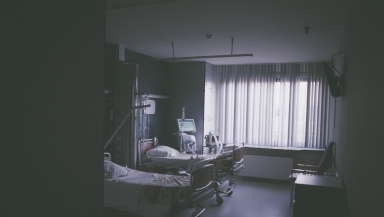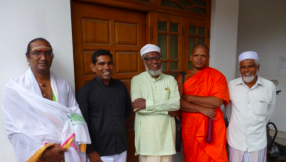
The British Medical Association (BMA) has abandoned its historical opposition to assisted suicide after voting to adopt a neutral position on the issue.
The vote was close, with 149 in favour of moving to a neutral position, 145 against and 8 abstentions.
Being neutral means the BMA will not support or oppose a change in the law.
The BMA now joins the Royal College of Physicians and the Royal College of Nursing in adopting a position of neutrality.
In a survey of BMA members last year, 40% said the medical body should actively support attempts to change the law, a third favoured opposition, and 21% said it should be neutral.
Following Tuesday's vote, the BMA said it will insist that doctors have legally protected rights to conscientious objection if assisted suicide is legalised in the UK.
The change in position comes as Parliament considers Baroness Meacher's Assisted Dying Bill which proposes permitting legal suicide for the terminally ill subject to approval by two doctors and a High Court judge.
A previous attempt to legalise assisted suicide six years ago was defeated.
Dr John Chisholm, BMA medical ethics committee chair, said: "Assisted dying is a highly emotive and sensitive topic that inspires a broad spectrum of views and opinions both across the wider public and among the medical profession, for whom any change of law would have a profound impact.
"As evidenced by the results of our recent survey of the profession and in today's in-depth debate, doctors have a wide range of personal views on this important issue, and as such representatives have decided that the most appropriate position for the BMA, as the professional body which represents all doctors and medical students in the UK, to hold is to be neutral on the topic.
"This is an important day for the BMA and the medical profession, clearly demonstrating that we as an organisation are listening to our wider membership on such a crucial issue, and developing policy based on their valuable feedback.
"Moving to a position of neutrality means that the BMA will not lobby for or against a change in the law, but far from remaining silent on the issue, we will continue to represent the views, interests and concerns expressed by our members."
Commenting on the vote, Dr Gordon Macdonald, Chief Executive of the Care Not Killing alliance - which is opposed to assisted suicide - said the "only safe system is the one we currently have".
He said that the experience of countries where it is already legal showed that promised safeguards could not be trusted.
"The rapid extension of Canadian law to those with chronic disease, mental health problems and disability shows the fallacy of trusting in proposed legal safeguards and how only safe system is the one we currently have – a complete prohibition on state sanctioned killing," he said.
"Our current laws protect vulnerable people and do not need changing, instead we need to refocus our attention on how to ensure we provide the very best palliative care to those who need it."
Danny Kruger MP, chairman of the All Party Parliamentary Group for Dying Well, said: "That even the most activist doctors group could not muster a majority for neutrality on assisted suicide shows just how unpopular it is. Clinicians recognise the dreadful, painful deaths an assisted suicide law would inflict, which is why many doctors and the Royal Colleges continue to oppose it."
Medics who support the status quo have warned against changing the law.
Dr Gillian Wright, a palliative care specialist and researcher for the Our Duty of Care (ODOC) campaign group said: "The primary danger of assisted suicide is that people are devalued by society. This may be because they are ill, disabled or confused.
"Terminally ill and disabled individuals may begin to devalue themselves because they feel a burden. Legislation on assisted suicide, designed to give choice, may erode the choices of the most vulnerable."
Another ODOC member, David Randall, said: "Doctors have a duty to protect their patients from harm, and this means maintaining our opposition to assisted suicide and euthanasia. We must never allow vulnerable people to feel like their lives are a burden on others.
"International experience shows that there is no way to implement these practices safely, and our own personal experience as doctors teaches us that patients who are properly cared for seldom request assistance in ending their lives. We need better end of life care, not the legalisation of assisted suicide or euthanasia."
If you have been affected by any of the issues in this article, the Samaritans can be called for free 24/7 on 116 123.













